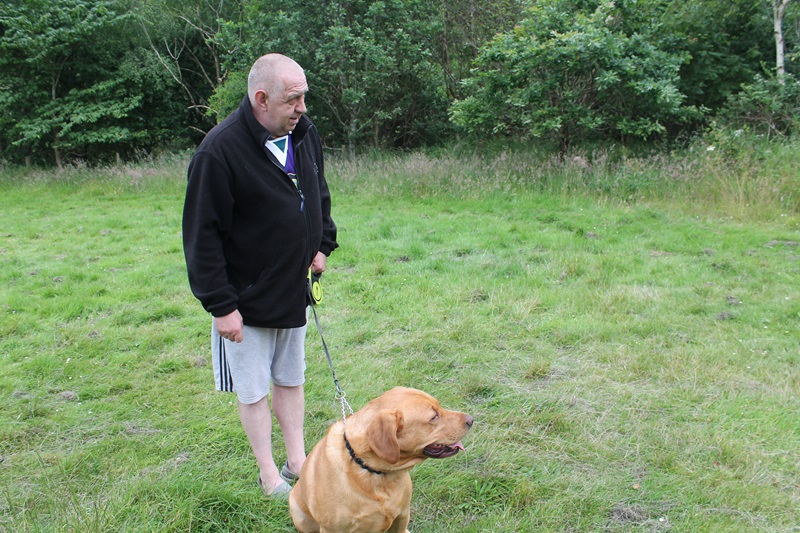The oil and gas industry aims to bring clean jobs to Aberdeen, but it involves paving over part of a much-loved park, igniting a debate on just transition
Just transition?
The ETZ is backed by fossil fuel giants BP, Shell and local billionaire Ian Wood, whose Wood Group made its money providing engineering and consulting services to the oil and gas industry. The plan is to create campuses focused on hydrogen, carbon capture and storage, offshore wind, and skills development in an area initially the size of 50 football pitches, but expanding as private investment grows. To this end, ETZ Ltd – the company set up to build and run the zone – will receive up to £80m ($103m) from the UK and Scottish governments. Announcing some of that funding in 2021, the Scottish government’s then net zero, energy and transport secretary Michael Matheson said “urgent, collective action is required in order to ensure a just transition to a net-zero economy”, adding “Scotland can show the rest of the world how it’s done”. But many Scottish climate campaigners don’t see this as a just transition. About 100 of them travelled to St. Fittick’s Park last week to hold a five-day “Climate Camp” in a clearing that would become part of the ETZ. One camper, who did not want to give her name, told Climate Home that the energy transition should not “exacerbate existing inequalities, but try to redress existing inequalities”. A just transition, she said, must protect both workers in the fossil fuel industry and community green spaces. Another protestor who did not want to giver her full name is Torry resident Chris. She said “the consultation process was flawed”. Not many people participated to start with, and some stopped going to meetings because “they were disillusioned with the way that good ideas were co-opted and then used to justify the expansion of the industrial area into the park”, she added.

Green MSP Maggie Chapman at the Climate Camp on 13 July (Photo: Hannah Chanatry)
Local Member of the Scottish Parliament (MSP) Maggie Chapman, from the Scottish Green Party, agreed, adding “the best transition zone plan in the world will fail” if it is done to a community rather than with meaningful input from them. Another protesting resident, David Parks, said wealthier parts of the city would not have been disregarded in the same way. “You wouldn’t see this in Old Aberdeen and Rosemount,” he said. “[Torry] is just kind of the dumping ground for all these projects that you wouldn’t get off with anywhere else.” Industrial developments have encroached on the old fishing town of Torry for decades. Today, residents are hemmed in by an industrial harbour, roads and a railway and live alongside a waste-to-energy incinerator, a sewage plant, and a covered landfill.

David Parks at the Climate Camp in St. Fittick’s Park on 13 July (Photo: Hannah Chanatry)
Some of the activists also take issue with the emphasis the ETZ places on hydrogen and carbon capture and storage, which they see as “greenwashing”. Hydrogen is a fuel that can be made without producing greenhouse gas emissions, and used to decarbonise industries like steel-making which are difficult to clean up. But a Climate Camp spokesperson told Climate Home that, “given the industry’s tendencies” and the fact that 99% of hydrogen is currently made using fossil fuels, they assume it will be produced in a polluting way at the ETZ.
Backers respond
ETZ Ltd told Climate Home in a statement that the project is committed to collaborating with the local community, particularly on efforts to refurbish what would be the remainder of the park. While the ETZ’s opponents argue there are existing industrial brownfield sites in the area that could be used instead of the park, the company said the area in St. Fittick’s Park next to the port is essential for the development to draw in substantial investment for renewables and for Aberdeen to compete in a new energy market. Many brownfield sites are already planned for use by the ETZ, and would not provide the kind of logistical access needed for the planned projects, they added.
Sign up to get our weekly newsletter straight to your inbox, plus breaking news, investigations and extra bulletins from key events
“Almost all other ports in Scotland are making similar investments, and we simply don’t want Aberdeen to miss out on the opportunity to position itself as a globally recognised hub for offshore renewables and the significant job benefits this will bring,” said the statement. The company added that the original plans for use of the park had been considerably reduced and the new master plan includes several measures to revitalise parts of the park and boost public access. It includes several parklets, a boardwalk, enhanced wetlands and a skate and BMX bike park. While the oil industry’s backing has raised campaigners’ eyebrows, ETZ Ltd said the industry’s involvement is key to ensuring the development of skills and jobs central to the ETZ’s goals. The section of St. Fittick’s Park up for development was rezoned in 2022 by the Aberdeen City council in order to allow industrial use of the land. Campaigners have challenged that decision and Scotland’s highest civil court will issue a judicial review later this month.
“You can’t just switch it off”
The ETZ dispute is just one example of efforts across Scotland to navigate the planned shift away from fossil fuels to renewable energy. Tools to support a transitioning workforce have stalled. An offshore skills passport is meant to streamline and unify the certification process for both the fossil fuel and renewable offshore industries, to enable workers to go more easily from one sector to the other. But it was delayed for years before a “roadmap to a prototype” was released in May this year. “The people can see a future, but it’s not happening – and they can see the current reality, which is [fossil fuels] declining, and that makes it very challenging,” said Paul de Leeuw, director of the Energy Transition Institute at Aberdeen’s Robert Gordon University. He said the focus needs to be on manufacturing and the supply chain, as that supports about 90% of employment in renewables such as solar and wind power. “If you don’t get investment, you don’t get activity, you don’t get the jobs,” he added. That’s the key concern for Alec Wiseman, who spoke to Climate Home while walking his dog in St. Fittick’s Park on Saturday. He seemed mostly unbothered by the climate camp, but complained it meant he couldn’t let his dog off leash.

Alec Wiseman walks his dog in St. Fittick’s Park on 13 July (Photo: Hannah Chanatry)
A Torry resident, Wiseman worked offshore for 25 years. He said he wants the ETZ to leave the park alone – and he also wants the overall energy transition to slow down until there is a clear plan. “The government needs to sit down with the oil companies and figure out something proper” for both the transition and the ETZ, he said, expressing scepticism about employment in wind energy. Overall, operating wind farms, once they’re up and running, does not require as many skilled workers as operating an oil and gas field. “You can’t just switch it off [the oil and gas],” he said. Lack of planning is what worries Jake Molloy, the recently-retired regional head of the Rail, Maritime and Transport Workers Union (RMT). Before leading the union, Molloy spent 17 years working offshore, and now sits on Scotland’s Just Transition Commission. He has spent years advocating for a fair deal on behalf of workers and local communities. “We need to do that value-sharing piece, that community-sharing piece, which was lost with oil and gas,” he said, referencing the privatisation of the industry in the 1980s. Right now, he says, communities that bear the brunt of the impact of oil and gas production don’t see the majority of the benefits – those flow to corporations. “If we allow that to happen again, we’re a million miles away from a just transition,” he warned.
UK court ruling provides ammo for anti-fossil fuel lawyers worldwide
Molloy also thinks the investment and jobs promised by the ETZ are not realistic, because previous changes to government policies caused too much whiplash, making investors shaky. However, he is curious about what will come from Labour’s announcement of Great British Energy, described as a “publicly-owned clean energy company” headquartered in Scotland. He also hopes to see climate change addressed on a crisis footing, similar to the approach to the COVID pandemic. There are indications of renewed momentum on renewable energy in the UK. The Labour government has already lifted an effective ban on onshore wind in England and brought together a net-zero task force led by the former head of the UK’s Climate Change Committee, Chris Stark. “In the context of an unprecedented climate emergency,” the ETZ said in a statement, “there are widespread calls from government and industry for energy transition activities to be accelerated.” But, for many, it is still too soon to know whether that shift will materialise, and be implemented in a just way. “The opportunities are there,” said MSP Chapman. But, she added, “it requires political and social will to make it happen and that’s the big challenge.”
(Reporting by Hannah Chanatry; editing by Joe Lo and Megan Rowling)














